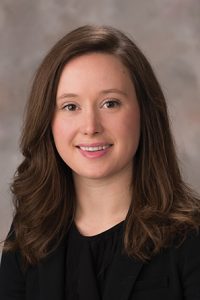Operation of autonomous vehicles debated
Driverless cars could be traveling on city streets under a bill discussed by lawmakers April 4 and 5.

LB989, as originally introduced by Lincoln Sen. Anna Wishart, would have authorized a city of the primary class to conduct a pilot project to test autonomous vehicles, which operate without a human operator. Currently, Lincoln is the only primary class city in the state.
Wishart said that autonomous vehicle technology is full of promise in the areas of safety, mobility, fuel efficiency, agriculture and economic development.
“Vehicles with this technology are already being produced,” she said. “This is our opportunity to stay competitive with this technology while ensuring the safety of Nebraskans by putting in place proper oversight.”
A Transportation and Telecommunications Committee amendment would have authorized the testing of autonomous vehicles statewide under a special permit authorized by the state Department of Motor Vehicles.
O’Neill Sen. Tyson Larson introduced an amendment, adopted 32-1, that replaced both the committee amendment and original bill. As amended, these provisions would authorize the operation of autonomous vehicles on all state roads and highways, as long as the vehicle is capable of operating in compliance with traffic and motor vehicle safety laws.
Larson said his amendment would encourage growth, development and expansion of autonomous vehicles in Nebraska.
“If Nebraska doesn’t allow for autonomous vehicles, it essentially puts a box around the state,” he said. “Nebraska’s neighbors will be the beneficiaries of pilot projects and will be experiencing technology that is the future of the industry.”
An autonomous vehicle may or may not contain a human driver. If a human driver is present in the vehicle, he or she must be a licensed driver and covered by insurance.
The amended bill also would authorize the operation of an on-demand autonomous vehicle network, which could provide transportation of persons or goods, including for-hire transportation or public transportation.
Political subdivisions would be prohibited from imposing any additional performance requirements or taxes that relate specifically to the operation of an autonomous vehicle.
Henderson Sen. Curt Friesen filed a motion to bracket the bill until April 18. He said issues like insurance coverage and accident liability still have not been discussed.
“I was looking forward to seeing Lincoln test the technology and now [the bill has] been hijacked and opened up [so that] we can have vehicles operating fully autonomously,” Friesen said. “We haven’t addressed many of the issues that come with autonomous vehicles. We are not prepared for this.”
Supporting the bracket motion was Omaha Sen. Ernie Chambers. He said supporters are willing to risk the safety of all drivers to win grant funding. Autonomous vehicles will be operating alongside human drivers, Chambers said, which puts everyone at risk.
“These cars are programmed to function according to the laws and rules of the road, but not everyone follows the rules of the road,” he said.
Bellevue Sen. Carol Blood supported the bill and opposed the bracket motion. She said the state needs to embrace technology and stop being scared of innovation.
“It is time for Nebraska to be in the forefront for once,” Blood said. “We don’t need to do the research. The research has already been done.”
Also opposing the bracket motion was Lincoln Sen. Patty Pansing Brooks. She said the state needs to seize opportunities when they come.
“Technology happens way more rapidly than we can anticipate,” Pansing Brooks said. “If we’re not ready, it’s going to take us by storm.”
The Legislature moved to the next item on the agenda before taking any additional action on the bill. Per a practice implemented last year by Speaker Jim Scheer, the sponsor of a bill that is facing a potential filibuster must demonstrate sufficient support for a cloture motion before the measure will be scheduled for additional debate.


